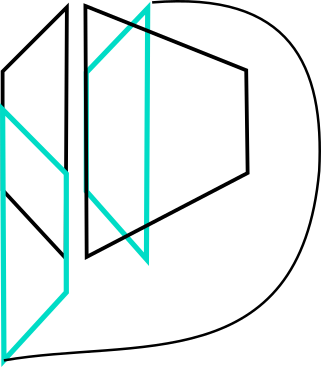Stop learning what you think is relevant
Still learning react, laravel & co? You better plan ahead!

This is a little account of what I have noticed after working in the industry for 20 years. May it help whoever is open to it.When I started coding, "bootstrap" wasn't referring to a CSS framework and amazon wasn't referring to a website. But since the dawn of time there was a societal phenomenon which's impact people tend to brush away with the expression "industry standard".
However, this expression infers a lot of weight it shouldn't carry, for all it means is "what the masses are using". And what the masses are using is almost always the worst anything in our industry can be: outdated.
How do I justify this bold statement?
Every trend has a lifecycle. We know this from expressions like "I wore X before it was cool". We don't even have to look for data (even though I DO recommend the book "Tipping point" (Gladwell)), we know this to be true instinctively: until innovation of any kind propagates through, new innovations are already developed.
It's easy to see how this is true for the engineer sitting on the 2023 designs before the 2022 model makes it to "most popular car of the year", likely even before the first 2022 model rolled out of the production plant, but for whatever reason we fail to recognize that while we also call ourselves engineers in tech, nowadays, this principle also applies to us.
Understanding time
Ten years ago, a team of Facebook engineers introduced a JS framework designed to interact with a backend based on a custom version of PHP: a prototype of what we today call react. Even earlier, two people at Google hashed out a different approach to interact with the DOM and called it angular. None of them could have foreseen that few years down the road these kind of projects would be seen as paradigm shift.
When did we, the "commoner" working on whatever shiny new web2.0 project of the day know about this. When did we start using it? Or even worse: When did finally even juniors be expected to be somewhat familiar with these concepts? Well, over half a decade later, in 2016, jQuery still outperformed React when it comes to downloads by 2 million. And keep in mind: you didn't need a build process, so working with a CDN instead of installing it was very common. Who known how big the actual gap was.
How far behind are you?
Now transfer these examples: if becoming a web developer in 2019 meant learning the industry standard jQuery, even though everybody worth a salary already knew it's legacy, what does that mean for your efforts when it comes to learning React? Why is the question React, Vue or Angular instead of Svelte vs. SolidJS?
The answer is because we all like to lie to you. Not consciously, but effectively. Look at the various interests:
Employers
What do you think the impact of thousands of new bootcamp alumni each week does to the industry? One can get a React developer for a reasonable amount of money and threaten with outsourcing to India if the "thankfulness" isn't high enough. Using industry standards means less expertise is required on the individual and more competition among peers. So why would an employer use innovative technology? To protect the employee against falling behind? Let's be honest: that's not your standard employers concern.
Recruiters
I have to be careful now as I have my fair share of experience with headhunters and recruiters and can count the positive examples on zero hands. Putting my personal bias aside, we still end up with the reality of capitalism: if I need to deliver either cheaper or more reliable than the countless job platforms, it's in my interest to dip into a pool of abundance and sell it as gold.
Seniors / leads
What is worse than your code from yesterday? My code from yesterday. Tasks like changing the CI after a rebranding initiative of a customer is anything but interesting or fun. The reason why job offers even mention basics like HTML and CSS is because existing developers have successfully sold management that somebody else is supposed to do the tedious stuff that "doesn't require too much brain".
Fandom
Industry standards soon lead to bubbles of constant reassurance. You have a couple of factors playing into this:
One industry standard is never alone.
Salesmen have known the power of alternatives for a long time. If the question is "Are you looking for a car for yourself or for a family member?", the question "Are you here with the intent to buy?" isn't part of the conversation anymore. That's why you know Android and iOS, but likely never heard of Ubuntu touch. And that's why articles aren't titled "Promising new concepts of 2023", but "Should I learn React or Vue in 2023?".
Then you fail to see it coming
Eventually, long after you've overcome the imposter syndrome you have felt after reading about it on Reddit, you will slowly understand that the Dunning-Krueger effect of coding is a really nasty one: you will have felt comfortable for a long time, thinking you can do it all before you finally realize "I can only work with X". Enter the existential fear.What will your subconsciousness do with this epiphany? Will you try to expand? Will you embrace the unknown? Hopefully, but most of you will try to remain in your comfort zone for as long as it's possible. You will become fanboys/girls.You will promote the technology you are stuck in, knowing that eventually the superiority of innovation will prevail, but trying to prolong the inevitable.So you argue online against things you don't have experience with and maybe even write some articles like "Why you should learn X in 2024".
Enough looking down
I know some of you might read this thinking that I started developing early boomerism, but let me tell you where these conclusions come from: my experience. A long time ago, when it was time to move beyond being a "Wordpress developer", I saw all of the above in myself. Back then, I didn't realize that the lifecycle of tech would become shorter and shorter, and that the workforce would simultaneously become less and less experienced, but way more competitive.Make it a habit to explore the outer rim of your knowledge, instead of only "deepening" your understanding of what you currently work with.Travel the road of state of the art, not the road of industry standard. Don't forget that eventually, you will have to anyway.

